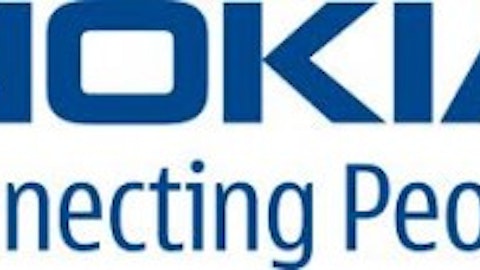The internet isn’t a series of tubes – it’s serious business.
At least, it is for the handful of powerful companies that exploited the revolutionary young technology to amass their incredible fortunes (and change all our lives!) by providing an ever-expanding variety of products and services to almost every inch of the globe.
Marissa Mayer – the freshly appointed CEO at Yahoo! – explained in her recent interview with Bloomberg at Davos that over the past fifteen years or so the internet has seen four cycles of disruptive innovation: “directories, search, social, and mobile.” The companies that most accurately represent those cycles are:

Yahoo! is a relic of the directories era. In the golden age of the internet – when you had to ride your dial-up modem uphill both ways to get to a website – Yahoo! built the first expansive and diversified internet empire with the proceeds of its directory business. It would eventually become a global provider of digital media content and web services over a wide array of industries. It was the first successful attempt at categorizing the internet into a consumable, entertaining, and profitable product.
However, the web eventually grew too large for Yahoo!’s directory model, and years of declining revenues and mismanagement have taken their toll on the company’s stock price. Today, the struggling company is undertaking a major turnaround effort led by former Googler Marissa Mayer. It is unclear exactly how Yahoo! intends to pull itself from the brink of obscurity, but one thing is crystal clear – the old Yahoo! is gone and it’s never coming back.
Google Inc (NASDAQ:GOOG)
Google – also known as the harbinger of Yahoo!’s demise – ushered in the search era. Did you know that from November 12 to December 12 of 2012, Google recorded a market share of 66.7% of the US search market? With the billions of dollars generated from search-based advertising, Google has invested in, created, and purchased countless products, projects, companies, and ideas. Notably, the company recently achieved success with its Android mobile operating system, purchased Motorola for $12.5 billion in May of 2012, and maintains a portfolio of some of the world’s most popular consumer web applications, such as Gmail, Maps, YouTube, and News.
But even Google doesn’t get it right every time. Google+, a social network built to compete with Facebook Inc (NASDAQ:FB), hasn’t achieved the level of success the company – and some investors – had hoped for. Their cloud-based Chrome operating system and associated Chromebooks haven’t reached significant market penetration. And, back in August of 2012, Google announced that the Nexus Q – a mysterious media streamer which debuted at Google’s annual I/O event – was no longer available for preorder from the Google Play Store and those who preordered received an email informing them of an indefinite delay for the device. The good news was that those who had already preordered would still receive theirs – free of charge – while Google “worked on making it even better.”
But still, Google continues to innovate and take risky bets on new industries. Self-driving cars and Google Glass – an augmented reality device shaped like a pair of glasses – are just two examples of some of Google’s more exotic projects.
Facebook Inc (NASDAQ:FB)
Over a billion served. Every single month. While Facebook doesn’t entirely dominate the social era (services such as Twitter and LinkedIn are strong players, too), it’s certainly the only one you can find your grandmother on. In fact, Facebook use is so pervasive that more than three times the US population uses the service every month.
However, unlike the other companies on this list, Facebook has had a rocky romance with Wall Street since the beginning. Launching at a price of $38/share, Facebook immediately tumbled. It reached its bottom a few months later after losing roughly 50% of its value and has been gaining steadily from there.
Some analysts have stated that a unique fact about Facebook is that it waited to go public until after it had already achieved incredible success. In theory, this decreases the overall growth potential for Facebook as continued exponential growth at these rates is perceived as unlikely.
Apple Inc. (NASDAQ:AAPL)
Apple is probably the greatest turnaround story in business history. The original iPod was released in October of 2001. The second-generation iPod, which added Windows support, was introduced summer of 2002, followed by the third-generation iPod in April 2003. The iPod mini – the first spin-off of the original iPod – debuted in January 2004. The stock was trading at under $12/share.
The stock gained steadily until 2007 – the year Apple launched the first iPhone. March of 2009 was the last time you Apple shares for under $100. By 2010, Apple was dominating the consumer electronics market with its iPod Touch, iPhone, MacBook, and iPad products. What followed was quarter-after-quarter of record breaking earnings and Apple eventually taking the title of the most valuable company ever from ExxonMobil.
However, over the past six-months we have watched Apple dive from its heights of $700+/share down to a low of $435/share after missing analysts’ earnings expectations amid fears that growth may be slowing, margins may be shrinking, and competition may be heating up.
In Summary
While it’s fun to look back at everything that has happened over the years, it’s always impossible to predict the future. The only thing that’s certain is that these companies have surely defined their era. And, going forward, each of them have unique risks and opportunities. The real question that should linger for all of you readers is: which one of these companies (if any!) will be the one to spot the next big thing?
As always, this is by no means an endorsement of any stock or advice to buy or sell any stock. My goal is simply to educate, amuse, and enrich. Good luck to all of you! And thanks for reading.
The article Winning The Future originally appeared on Fool.com and is written by Nathan Bradham.
Copyright © 1995 – 2013 The Motley Fool, LLC. All rights reserved. The Motley Fool has a disclosure policy.





